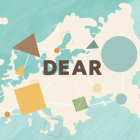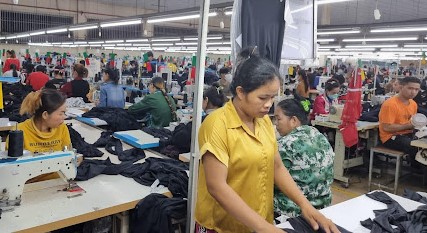Local Realities in the Global Garment Industry
News details
In a world of constantly evolving fashion trends, the voices of garment workers often go unheard. Yet, beneath the labels of our favorite brands are shared human stories of hardship, resilience, and solidarity. In May 2025, the DEAR project “Fashioning a Just Transition” spent a week in Cambodia to better understand the local realities of the clothing industry and to build human bridges across the global supply chain. It was a workers meet workers exchange.
Under the umbrella of the Clean Clothes Campaign, Belgian workers and trade union representatives (WSM and ACV PULS) travelled to visit their peers in Cambodia, which also hosts workers from Bangladesh. The programme of seminars, factory visits, and group exchanges, started with an introduction to the three countries’ political and social landscapes. Kristel from ACV PULS reflected, “What struck me is that despite the different contexts, the basis and motivation of union work is the same across borders.”
The most poignant moments were during factory visits, where participants saw the production of clothes for brands they work for. An, an employee from “The Fashion Store” said: “It was very special to see what’s behind the label. A label that you quickly cut out at home.” Stella from Belgium expressed the emotional link she felt with factory workers: “I felt a lot of connection. The stories they told about working conditions touched me. I hope to raise awareness within my company.”
A deep sense of unity and shared purpose permeated the visit. Conversations with Cambodian and Bangladesh workers revealed parallel struggles and hopes, illustrating the interconnectedness of workers worldwide. The exchange reaffirmed that solidarity is vital in fighting for fair conditions across the entire supply chain.
Later, the group engaged in a seminar on climate justice. Participants expressed shock over how mountains of discarded clothes threaten both workers and the environment in countries like Ghana, Kenya, and Chile. The consensus was clear: we must buy less, produce responsibly, and push for systemic change. Their conclusions will be reflected in the future Clean Clothes Campaign Manifesto on Just Transition.*
As the week drew to an end, reflections poured forth. Jörgen, a union secretary, emphasized the importance of returning to fundamental union principles—closer proximity to workers and collective action. Jens from a European firm shared, “I felt connected to the workers in the factory, who do the same job as me, only with less support.” Kristel summed it up: “International cooperation is essential; globalization has made us all more connected, we should join forces and learn from each other across borders”
This international exchange was an additional catalyst for change and hope. One employee concluded: "The meetings […] gave me the strength to keep going. The talks confirmed that we are all fighting for the same thing and that strengthening international trade union work can really make a difference."
The participants committed to bringing their insights from Cambodia to the table at their workers councils, to share their experiences with colleagues on the work floor, and to make concrete proposals to improve workers’ rights. Because, in the end, solidarity across borders is not just about understanding—it’s about transforming that understanding into collective action for a fairer, more sustainable future.
*Do you want to contribute to the Clean Clothes manifesto and support a just transition in the fashion industry? Share your thoughts on the e-participatory platform manifesto.cleanclothes.org. You have until 16 November 2025. The final manifesto will be published in 2026.


Log in with your EU Login account to post or comment on the platform.